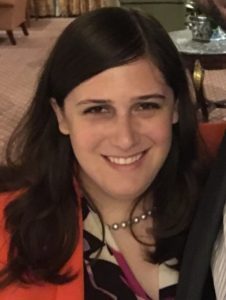Commentary on Parshat Pinchas (Numbers 25:10 – 30:1)
“Here I am, here I am and the light is dying
Where are you? Where are you? Will you answer me?
All alone in the quiet, ah my ears are thirsty
For your voice, for your voice; can you answer me?
Very soon, very soon, that’s the sound of longing
Are you there? Are you there? Will you answer me?”
These poignant words from the Broadway musical “The Band’s Visit” speak to a universal human need for companionship. As humans, we long for recognition. We long for others to notice us, and to respect us for who we are. In today’s world, many even long for the basic rights that define us as people — adequate shelter, clothing, food and water. We all long for something.
In this week’s Torah portion, Pinchas, the Israelites are in their 40th year of wandering in the desert. Throughout this journey, they have cried out — to Moses, to God, and to one another. They are longing, too — for safety and security, for assurance that they will find a place to settle down, for a home and all of the consistency and comfort that comes with it. They are looking for God to answer them by providing for them.
Sign up to receive Torah from T’ruah in your inbox each week.
Even within this early society, some people and groups throughout this part of the Torah are treated differently than everyone else, and, along with these spiritual desires, also long for basic equality. In Pinchas, God asks Moses to take yet another census, which, as most of the censuses of the Israelites do, only includes men over 20 who are able to bear arms. This leads to giant paragraphs of lists of who is included in the count, lists that solely consist of physically abled men and their male offspring. One result of this census is a plea from the daughters of Zelophehad, whose father has died and who have no male heirs in their family. These five brave women, Mahlah, Noa, Hoglah, Milcah and Tirzah, long for recognition, and they long for the inheritance that is rightfully theirs.They demand Moses, their community and God to answer them, to acknowledge their existence and to change a system that is unfairly biased against them, and against others who don’t have a voice.
In this case, God does answer them. God responds that their plea is just, and that Mahlah, Noa, Hoglah, Milcah and Tirzah should receive what is rightfully theirs. They will receive their father’s share, and their family name will not be lost merely because there are no males to carry on the family line.
Today, there are many vulnerable populations who bravely cry out, voicing their longing and seeking acknowledgement, affirmation, and recognition. Not everyone is as fortunate as Zelophehad’s daughters. One example of a group that longs for basic human dignity and for the system to treat them fairly is those who are incarcerated, especially people who are put into solitary confinement. As Justice Rountree, an organizer with the New Jersey Campaign for Alternatives to Isolated Confinement and a survivor of prolonged solitary confinement in New Jersey, writes: “To live in prolonged solitary confinement is to be denied your basic humanity, and to experience such extreme loneliness that it can feel as if the world has forgotten you…”
Find more commentaries on Parshat Pinchas
Last week, New Jersey became the first state to reach out to those put into solitary confinement, to address their longing and to respond to their cries. Due to the efforts of T’ruah and other human rights organizations, as well as lobbying from religious leaders and survivors of solitary confinement, Gov. Phil Murphy signed the Isolated Confinement Restriction Act into law. This legislation is the most progressive anti-solitary confinement legislation in the United States, and will hopefully pave the way for other states to follow. As Rountree put it, “Because of Gov. Murphy’s signature, those who have ever been in solitary, and those who are held in isolated confinement now, know they are not forgotten.”
 Humans have always needed recognition and affirmation, from the women in our Torah to those incarcerated in our own day. There is much work to do as we strive to reach out to them, to listen to the sound of their longing. May we continue our efforts to work towards a world in which each person feels heard. May we answer one another in profound and lasting ways. May we create a society where no one feels vulnerable or marginalized, where basic equality is no longer a dream but a reality.
Humans have always needed recognition and affirmation, from the women in our Torah to those incarcerated in our own day. There is much work to do as we strive to reach out to them, to listen to the sound of their longing. May we continue our efforts to work towards a world in which each person feels heard. May we answer one another in profound and lasting ways. May we create a society where no one feels vulnerable or marginalized, where basic equality is no longer a dream but a reality.
Rabbi Maya Y. Glasser serves as the Assistant Rabbi of Anshe Emeth Memorial Temple in New Brunswick, NJ. She was ordained from the New York campus of Hebrew Union College-Jewish Institute of Religion in May 2018.


